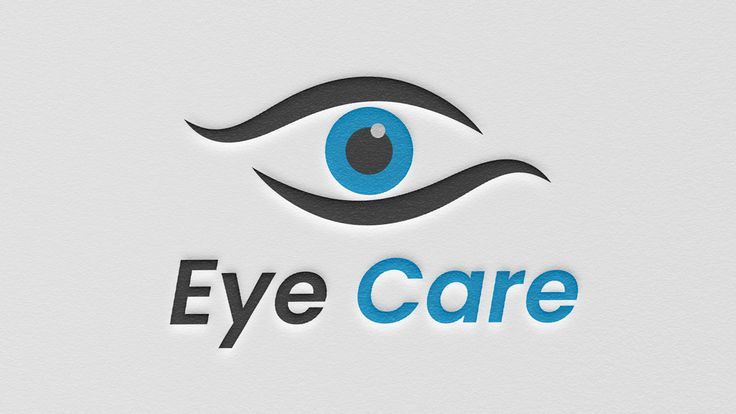Dry Eye Treatment in Zaheerabad
Home/Services/Dry Eye Treatment

What is Dry Eye Syndrome?
Adequate tears, which are of high quality and in sufficient quantity, are essential for maintaining comfort and proper function of the eyes.
Dry eye syndrome occurs when there is a disruption in the composition or volume of the three layers constituting the tear film. These layers include an outer oily layer, a middle watery layer, and an inner protein layer.
Symptoms of Dry Eye Syndrome
- A sensation of scratchiness, as if there’s something in your eye.
- Stinging or burning sensations in the eye.
- Redness of the eyes.
- Increased sensitivity to light.
- Blurred vision.
Treatment for Dry Eye Syndrome
Artificial Tears: Using moisturizing eye drops to alleviate dryness and maintain eye moisture.
Prescription Medications: Some cases may require medications like cyclosporine (Restasis) or lifitegrast (Xiidra) to reduce inflammation and enhance tear production.
Punctal Plugs: Small devices inserted into tear ducts to prevent drainage and retain moisture in the eyes.
Lifestyle Adjustments: Making changes such as using a humidifier, wearing sunglasses outdoors, and taking breaks during prolonged screen use to improve eye comfort.
Nutritional Supplements: Omega-3 fatty acids can potentially enhance tear quality.
Eyelid Care: Applying warm compresses and practicing gentle lid hygiene to clear blockages in tear-producing glands.
Medical Procedures: In severe instances, treatments like intense pulsed light therapy or procedures to express blocked meibomian glands may be recommended.
Precautions for Dry Eye Syndrome
Environmental Management: Avoiding dry air, wind, smoke, and high altitudes to prevent worsening symptoms.
Eye Protection: Wearing wrap-around sunglasses or goggles outdoors to shield the eyes from wind, dust, and sunlight.
Hydration: Maintaining hydration by drinking plenty of water throughout the day.
Blinking Awareness: Being mindful to blink regularly, especially during prolonged screen use, to keep the eyes moist.
Eye Care Products: Using mild eye makeup removers and avoiding harsh facial cleansers near the eyes.
Screen Use: Taking frequent breaks during screen use and using devices with reduced glare or blue light filters.
Humidification: Using a humidifier indoors to keep air moisture levels adequate.
Consultation: Regularly visiting an eye care professional to monitor symptoms and adjust treatment plans as necessary.
How to know if you have Dry Eye Syndrome?
If you experience persistent symptoms such as burning, dryness, grittiness, itchiness, aching sensations, heaviness, excessive tearing, or blurred vision, making adjustments to your daily routines can often alleviate these symptoms. However, if these symptoms persist over a prolonged period and significantly impact your comfort, seeking professional treatment for dry eyes is highly recommended.
What do our experts do?
Prescription Eye Drops
Lubricating eye drops function by incorporating similar components found in natural tears to provide moisture and alleviate discomfort. Alternatively, some drops include immune-suppressing medications aimed at reducing inflammation of the cornea, which can affect tear production.
Cholinergic Drugs
These medications promote tear production but are less commonly used due to potential side effects.
Eyelid Wash
Eyelid washes, often prescribed for conditions such as blepharitis, effectively reduce eye inflammation by diminishing bacteria around the eyelids and eyelashes.
Eye Ointments
Eye ointments are not only used to treat dry eyes but can also be effective for treating sore eyes or Lagophthalmos, a condition characterized by dryness and exposure due to a gap between the eyelids.
Blood Serum Drops
Derived from plasma and blood serum, these drops are considered when conventional treatments prove ineffective. They are formulated by combining blood with sterile saline to address symptoms of dry eye.
Therapeutic Lenses
Therapeutic lenses are utilized to treat a broad range of corneal conditions, including bullous keratopathy, corneal erosions, epithelial defects, and recovery from surgeries like keratoplasty and laser vision correction.
FAQs
Whats the connection between dry eye symptoms and contact lens
Contact lenses can occasionally lead to issues such as discomfort, redness, and irritation because they directly touch your eyes. Insufficient tear production can cause the tear film under the lens to become thin. Consequently, the surface of your eye may rub against the lens, resulting in dry eye syndrome.
Do dry eye symptoms go away by themselves?
Dry eye symptoms typically improve with time if you follow proper measures such as staying hydrated, avoiding dry environments, and reducing eye strain. However, if the discomfort persists, it’s advisable to consult a doctor.
What makes dry eye symptoms worst?
Dry eye symptoms can worsen due to external factors such as air conditioning, prolonged computer use, allergens, dust, and heat. It’s crucial to differentiate dry eye symptoms from eye allergies or other eye-related issues.
- Use a humidifier to increase moisture in the air.
- Wear sunglasses outdoors in bright sunlight.
- Apply a warm, damp cloth gently to alleviate eye irritation.
- Consider taking supplements containing fatty acids.
- Avoid using aggressive cleansers or face washes near your eyes.
How can you naturally treat dry eye symptoms
- Use a humidifier to increase moisture in the air.
- Wear sunglasses outdoors in bright sunlight.
- Apply a warm, damp cloth gently to alleviate eye irritation.
- Consider taking supplements containing fatty acids.
- Avoid using aggressive cleansers or face washes near your eyes.
Our Services
Book An Appointment
Why Choose Eyecare Optical and Clinic ?
- Experienced Doctors
- Cutting-edge Technology
- 1000+ Trusted Patients
- 10+ Years Services
- 10,000+ Surgeries
- 100% Accurate Results
- Quick Recovery
- Your Vision Is Our Focus
- Treatments
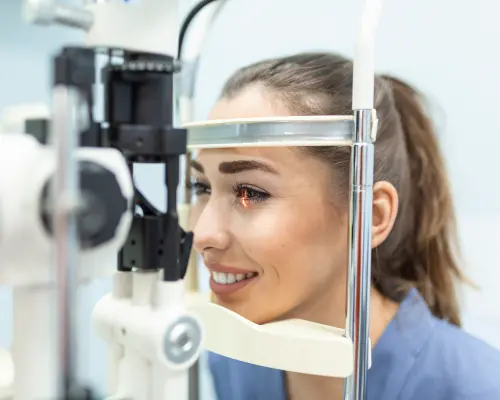
Customised LASIK
Personalized LASIK is a type of vision correction surgery that is more accurate and specific than normal LASIK since it is customized to the specific flaws in each patient's eye.
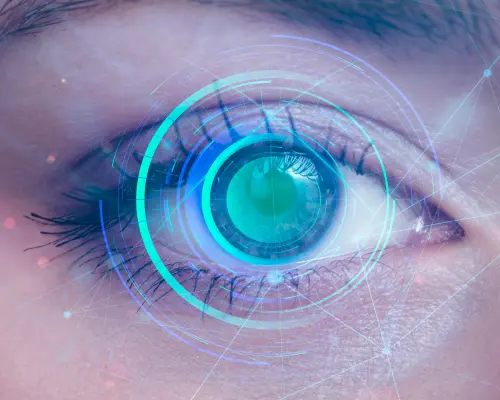
Retina Services
Retinal services include specialist medical care for the diagnosis, treatment, and management of disorders and diseases that impact the retina.
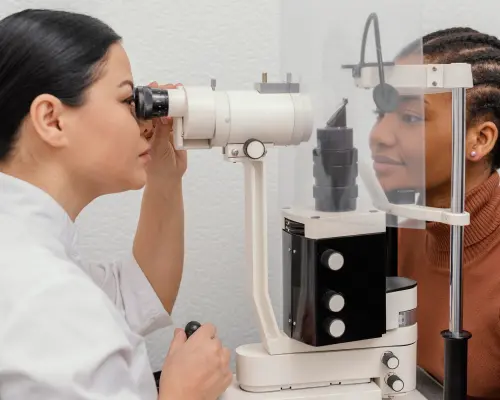
Corneal Services
The clear front surface of the eye, the cornea, is affected by a variety of diseases and ailments, which Corneal Services specializes in identifying, treating, and managing.
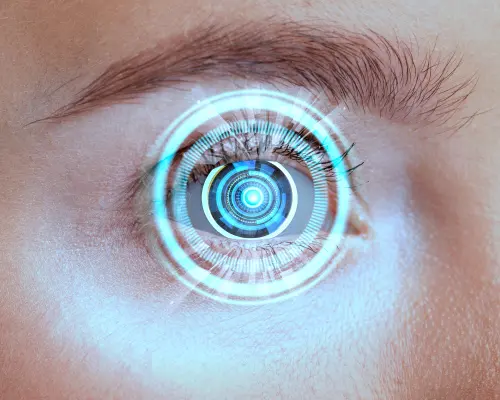
Anti-VEGF Agents
Anti-VEGF therapies are drugs that prevent aberrant blood vessel formation and leakage by blocking vascular endothelial growth factor (VEGF).
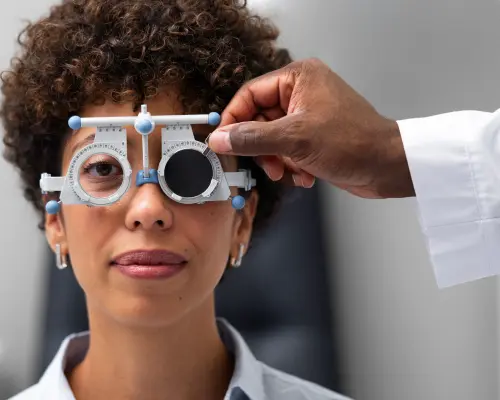
Epi-LASIK
A form of refractive surgery called epi-LASIK uses a laser to separate and reshape the corneal epithelium in order to treat visual issues like astigmatism, hyperopia, & myopia.
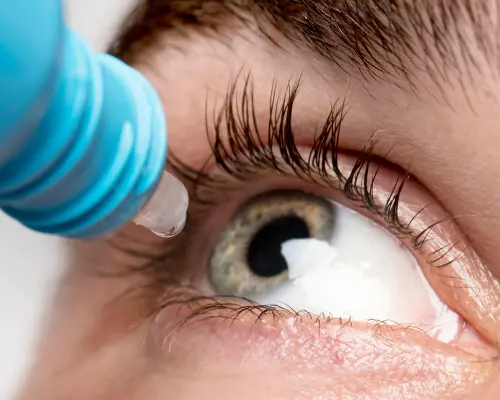
Dry Eye Treatment
To control symptoms and enhance tear production, dry eye treatment options include prescription drugs like cyclosporine, artificial tears, and lifestyle modifications.
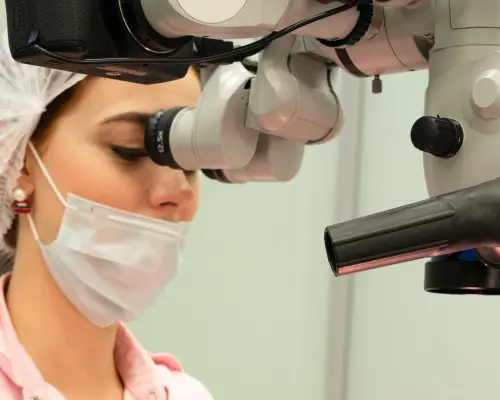
Contoura Vision
Contoura visual is a highly precise LASIK eye surgery treatment that corrects visual abnormalities using topography-guided technology.

ICL
The term "ICL" refers to Implantable Collamer Lenses, a kind of corrective lens that is placed inside the eye to cure astigmatism, hyperopia, and myopia.
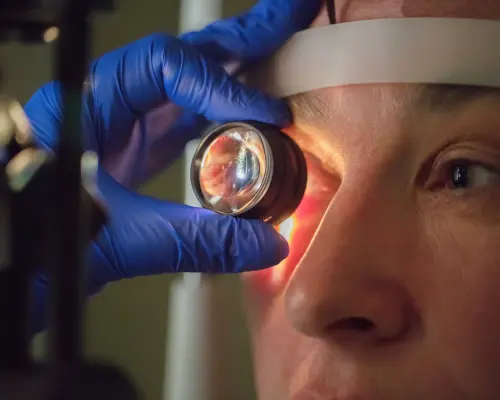
Cataract Surgery
The process of having a cataract surgically removed and a clean artificial lens placed in its place restores eyesight.

